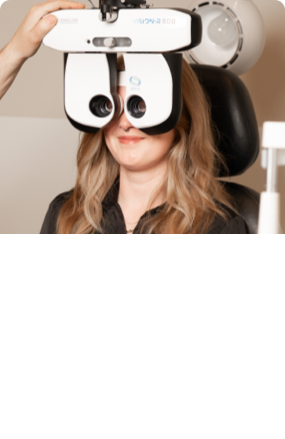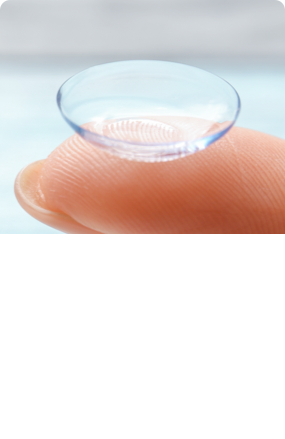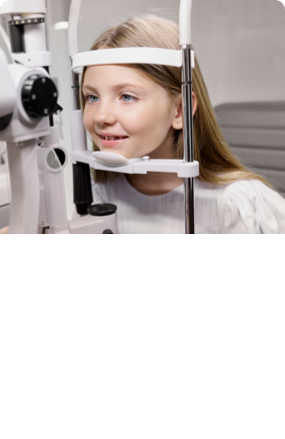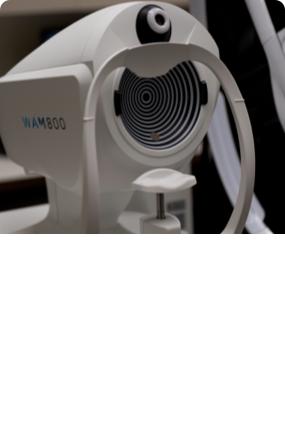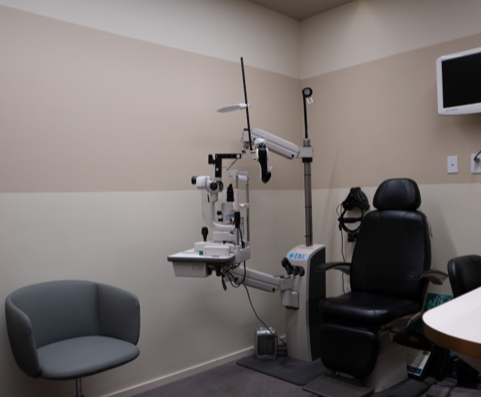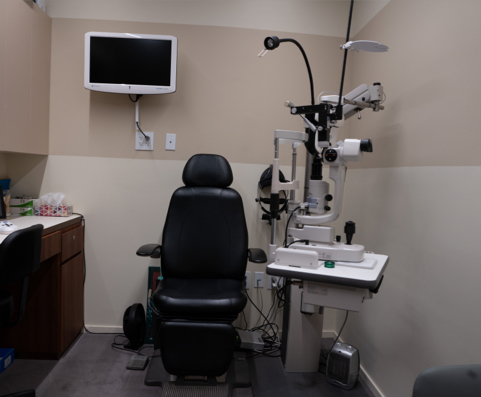Diabetes is a disease caused by your body’s inability to regulate blood sugar. High blood sugar can cause damage to organs, blood vessels, and nerves throughout the body and those in the eyes.
People with diabetes or high blood sugar are more at risk of developing several eye-related problems: cataracts, glaucoma, and retinal damage.
Early diagnosis and management of diabetes include regular diabetic eye exams and controlling blood sugar to prevent vision problems from worsening.
We discuss the various eye-related complications of diabetes and provide advice on prevention measures.
What Is Diabetes?
Insulin, a hormone produced by the pancreas, regulates the amount of sugar (glucose) in the blood to maintain proper functioning. In diabetes, the body can’t make insulin or use the insulin it produces.
There are 4 types of diabetes:
- Diabetes Mellitus Type 1—also called insulin-dependent diabetes, is when the body can’t produce its own insulin.
- Diabetes Mellitus Type 2 diabetes—when the body doesn’t make enough insulin or can’t use the insulin produced properly.
- Gestational diabetes—is a temporary form of diabetes developed during pregnancy.
- Diabetes Insipidus–is caused by damage to the hypothalamus or pituitary region of the brain.
Diabetic Eye Diseases
Diabetes can increase your risk of heart disease and stroke and cause damage to the kidneys. Several eye conditions that can result from diabetes include:
Blurry Vision
Blurry vision is when you lack visual clarity and find it harder to see fine details. Blurred vision can indicate high glucose levels.
Because of high blood sugar, fluid leaks into the eye’s lens, which causes it to swell and change shape. This can make it harder to focus and your ability to see clearly, resulting in blurry vision.
Blurry vision can be a symptom of diabetes, another eye problem, or needing a prescription change. For these reasons, it’s best to contact your eye doctor to determine the underlying cause of your blurry vision.
Diabetic Retinopathy
Diabetic retinopathy is when high blood sugar damages the small blood vessels in the retina and causes them to change. The blood vessels weaken, swell and leak blood, or new abnormal blood vessels grow. Diabetic Retinopathy is the leading cause of blindness in working-age adults.
There are 2 stages of diabetic retinopathy:
Early or Non-Proliferative Stage
Blood vessel walls weaken, bulge, and leak blood and other fluid. This causes part of the retina, called the macular, to swell, resulting in macular edema.
The early stage may not present with symptoms, and why it’s crucial to have regular dilated eye exams.
Advanced or Proliferative Stage
New blood vessels grow but are fragile and often bleed into the vitreous (gel-like fluid that fills the eye). Depending on the amount of bleeding, your vision may be affected.
Proliferative stage retinopathy requires aggressive treatment to prevent total blindness. Once your optometrist detects it, often via a dilated eye exam or using Optomap Retinal Imaging, they often will make an urgent referral to a retinal surgeon who treats the disease with laser therapy or injectable medications.
Symptoms of diabetic retinopathy are more prominent in the later stage and can include:
- Blurry or distorted vision
- Eye floaters
- Difficulty seeing at night
- Colour changes in vision
- Loss of vision
Cataracts
A cataract is the clouding of the eye’s lens. While cataracts are more prevalent as you age, people with diabetes can get them earlier. High blood sugar causes deposits to build up, which makes the lens cloudy.
Symptoms of cataracts include:
- Cloudy or blurry vision
- Colours look faded
- Double vision
- Sensitivity to light
- Glare
- Halos around lights
- Prescriptions change often, but vision may not improve with a new prescription
Glaucoma
Glaucoma is a group of diseases in which pressure causes damage to the optic nerve. The optic nerve at the back of the eye sends visual messages to the brain.
If you have diabetes, your risk of glaucoma is up to 50% higher. Some types of glaucoma don’t present with symptoms, with vision loss occurring gradually.
In some cases, when new abnormal retinal blood vessels grow in diabetic retinopathy, they can grow on the iris (coloured part of the eye). These can block fluid from leaving the eye, increase eye pressure, and lead to glaucoma.
Symptoms of glaucoma may include:
- Vision loss
- Loss of peripheral vision
- Halos around lights
- Eye pain
- Redness
- Nausea or vomiting
- Headaches

Diabetic Eye Exams
If you have diabetes, it’s important to have annual eye exams. In some cases, optometrists are the ones to diagnose someone with diabetes.
For those with diabetes, a diabetic eye exam checks for diabetic retinopathy and macular edema to prevent vision loss. During the exam, your optometrist can look at images of your retina to view the vascular system and dilate your eyes to observe the back.
Here is some information on how to better prepare for a diabetic eye exam:
- Bring a list of current medications and supplements.
- Bring a pair of sunglasses, as dilation can make your eyes sensitive to light.
- Have someone drive you home after.
Reduce Your Risk of Diabetes-Related Eye Problems
There are ways to protect your vision and reduce your risk of developing diabetes-related eye problems. Speak to your eye doctor about how you can manage your risk:
- Keep blood sugar, blood pressure, and cholesterol levels in your target range.
- Quit smoking, as it can lower your risk of developing eye diseases.
- Get active! Physical exercise that includes resistance training or weight-lifting helps build lean muscle mass, which can help manage blood sugar.
- Eat a nutrient-dense, whole-foods diet that minimizes processed foods. These include foods that come pre-made in a box or bag, foods with a long list of ingredients, food containing added sugars, highly-refined carbohydrate sources like wheat/corn flours, and vegetable oils like corn oil, canola oil, or margarines/butter-alternatives.
- Work with a dietician or nutritionist who specializes in managing diabetes.
Importance of Eye Exams
Millions of Canadians live with diabetes and are more likely to experience sight loss. With regular eye exams, your optometrist can detect early signs of diabetes and other related eye diseases.
Take a proactive step and book an appointment with Orchard Park Optometry today to reduce your risk of diabetes-related vision-threatening complications.


